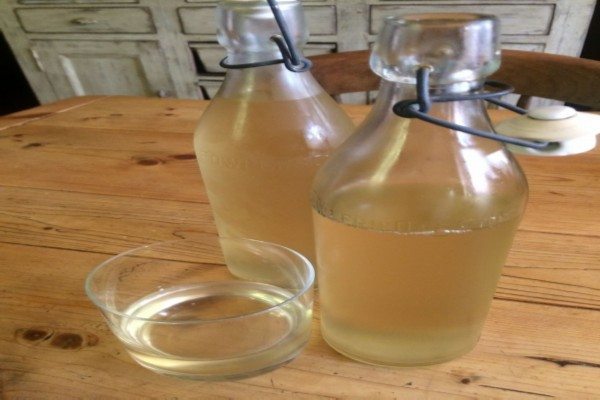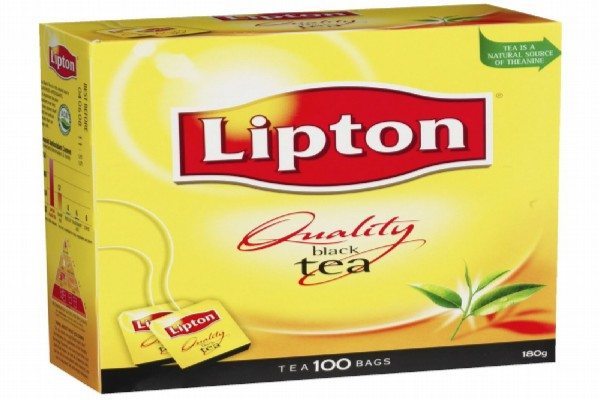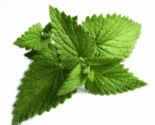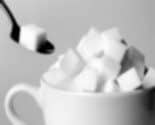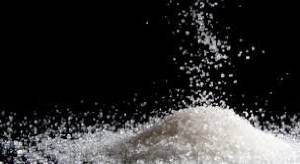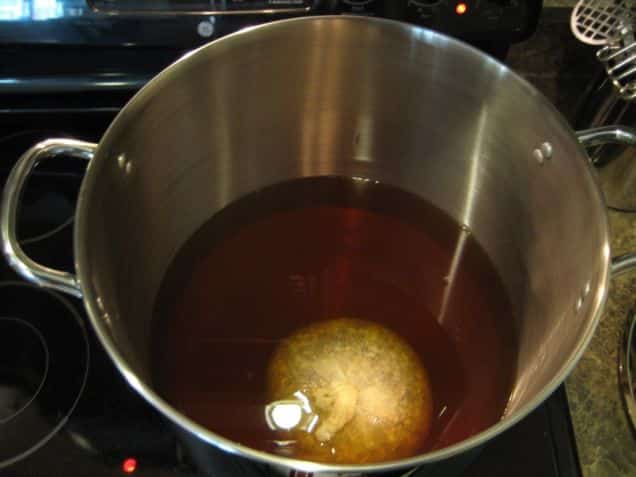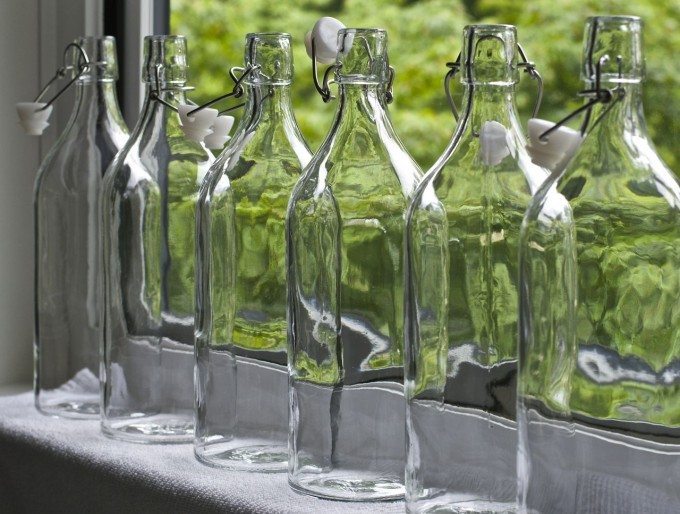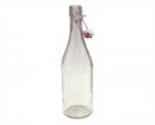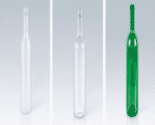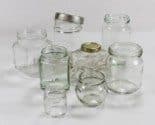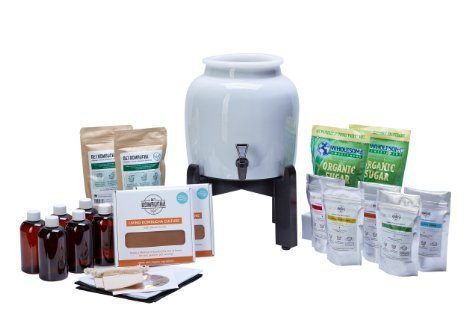Brewing Kombucha on a Budget: The Penny Pincher’s Guide
Do you have a kombucha habit? That’s good! You’re improving your health with every sip of that probiotic brew. Is your kombucha habit eating into your weekly budget? That’s bad! It’s time for you to start brewing kombucha at home. You’ll be amazed at how easy – and inexpensive – it is.
Average Cost Savings
You can buy a bottle of commercially-made kombucha for anywhere between $2.50 and $5 depending on the brand and where you live. At an average of $3.75 a bottle, your daily fix of fermented goodness adds up to $26.25 per week … $112.50 per month … and a whopping $1,368.75 per year. While you could say that’s a great investment because of the many health benefits of kombucha, there are other things that you could be doing with over one thousand dollars each year, like taking a vacation to enjoy the mental health benefits of relaxation.
By contrast, here’s what it will cost you to buy a complete set of quality kombucha brewing equipment:
Basic Costs for Kombucha Starter Equipment Set
$30.00 one 5-quart stainless steel pot
$20.00 two 1-gallon glass jars
$ 8.00 one 2-cup glass measuring container
$ 8.00 one set stainless steel measuring cups and spoons
$ 3.00 one yard of muslin cloth
$ 1.00 one plastic funnel
$30.00 twelve 16-ounce flip-top seal-able bottles
TOTAL BASIC EQUIPMENT COST: $100
In addition, you’ll need a SCOBY (Symbiotic Colony Of Bacteria and Yeast), a bottle of raw kombucha for getting your first brew started, plus sugar, tea, and water for the sweet tea mixture the SCOBY feeds on. The SCOBY and raw kombucha starter are a one-time cost. As long as you take care of your SCOBY it will not only last for months, it will also constantly create new “baby” SCOBYs. As long as you keep brewing kombucha, you’ll always have a fresh SCOBY.
You can buy a SCOBY from one of the many online kombucha specialty stores, or from a brewing or fermentation supply company. Check with your local natural foods store to see what’s available in your area. In general, you’ll pay between $10 and $30 for a good-sized SCOBY in good health.
Every time you make a batch of kombucha, you’ll need to make fresh tea using water, black or green tea, and sugar.
- The best water for kombucha is filtered water. You can buy a one-gallon filtration pitcher with a set of replacement filters for about $50, and by the end of a year this turns out to be much less expensive than buying bottled water every week.
- You’ll want to use black tea or green tea for kombucha as your basic brew, although you can choose different varieties or even include some types of herbal tea. A box of organic, high-end, top-quality tea contains 16 tea bags, and you’ll need 8 tea bags for a one-gallon batch, for a total cost of about $2.50 per batch.
- Make kombucha using white sugar for the most consistent results at the lowest price. You can buy a 10-pound bag of organic white cane sugar at most big-box grocery retailers for around $25, and that will give you enough sugar for 20 one-gallon batches, or $1.25 per batch.
Initial Kombucha Ingredient Cost
This is the one-time cost you will pay for your kombucha-making ingredients, mainly your starter + scoby (if you buy it) and water filters to make the filtered water. The price will be different if you source these from elsewhere (i.e. you are given your SCOBY + starter and you don’t buy filtered water).
$20.00 SCOBY starter culture
$ 3.50 one bottle raw unfiltered kombucha
$50.00 water filtration pitcher and extra filters
TOTAL ONE-TIME INGREDIENT COST: $73.50
Total Weekly Ingredient Cost
This is what you’ll pay per week in ingredients for brewing a batch of Kombucha — 1 gallon
$ 2.50 8 bags of black tea
$ 1.25 1 cup of sugar
TOTAL WEEKLY INGREDIENTS COST: $3.75 x 52 = $195.00
Summary of Costs per Year
Adding up all of these costs for one full year of kombucha brewing (at one gallon per week), you get an average estimated total cost of $368.50. When you look at the estimated total cost for buying one bottle of kombucha every day for a year, you’ll notice that even using the most expensive ingredients and top-quality equipment, you still will spend a thousand dollars less on home-brewed kombucha than on store-bought. But wait – it’s even better than that! The store-bought bottles are usually 8 ounces each, giving you 56 ounces of kombucha each week. By contrast, you’ll be making over 120 ounces of home-brewed kombucha every week. That’s double the savings, no matter how you look at it!
Of course, there are other costs to be considered: your municipal water bill (you’ll be filling the pitcher from your tap), your electric bill (you’ve got to heat the water, and keep the finished brew cold in your refrigerator), and even your time; it will take you an hour or so each week to nurture your kombucha from start to finish. But even when you factor in these costs, there’s absolutely no doubt you’ll be saving hundreds of dollars a month when you make your own kombucha.
How to Save Money on Ingredients
Use Tea Bags: Instead of using top-shelf organic tea bags, you can use good-quality tea. The SCOBY isn’t going to check the label on the box, and just wants a good strong brew. You’ll get the best results if you use fresh tea leaves, so avoid the discount brands, or any box of tea that’s near its expiration date, but if budget it your prime concern, you can get away with green or black tea bags. If you really want to save, you can even look at Lipton’s bulk tea bags as the cheapest option.
If you have a specialty tea shop nearby, check out their prices for loose-leaf tea. Since you only have to use a few tablespoons of tea for each batch, even the more expensive varieties can be quite affordable. You won’t have to pay for the packaging, and you can easily switch varieties if you don’t like the one you’re using. We find the best deal tends to be quality organic black tea (such as Davidson’s Black Tea) or quality organic green tea (again, Davidon’s Sencha Green tea). Most premium organic tea is sold in 16 ounces, but if you look around or are not brand specific, you should be able to find higher bulk amounts (likely 32 ounce or 2lbs).
Buy Refined White Sugar: this ‘plane Jane’ sugar might not impress with any fancy names and it might not be unprocessed and hail from somewhere exotic like the Brazil like some of the other Raw Sugars, but it will do just fine for SCOBY food — your SCOBY will gladly eat up refined white sugar. Even more, it’s the cheapest sugar.
Sure you can tinker with the flavor of your ‘buch’ and quality of your brew by choosing organic raw sugars or other sweeteners, but for your basic Kombucha brew that tastes awesome, refined white sugar works like a charm. We recommend something like the 25lb bag of Domino Sugar from Amazon.
If you are dead set on having the best quality sugar and white refined won’t cut it, then I point you to Rapunzel Pure Organic Whole Cane Sugar (1.5 lbs) which is pricey sugar, but pretty much the best quality you can get. The middle ground between bulk + price would be Wholesome Sweeteners Fair Trade Organic Sugar 12 pack of 16 ounce pouches which costs about 36 USD for what comes out to be 12lbs.
Buy Sugar in Bulk: Bulk buying is key if you want savings. If you are going to brew Kombucha consistently, then it makes sense to invest in bulk sugar.
As mentioned above, you can get organic cane sugar in a 10-pound bag. Buying in bulk is almost always cheaper, and if you have a place to store a bag this size, it’s going to be more practical than buying the smaller boxes. You can go to your local Costco or Walmart and likely pick up a big bag of bulk sugar. However, we do recommend you buy bulk sugar online from Amazon for the cheapest price by far. If you are a PRIME member, you even get free next day shipping to boot.
Second Fermentation Money Saving Tips: When it comes to adding flavor to kombucha during the second fermentation process, save money by following these tips:
- Buy in bulk wherever possible (herbs and spices, herbal teas).
- Buy seasonal fruits and fresh herbs, go to U-pick farms, and/or grow your own.
- Buy frozen fruit when it’s out of season or an exotic variety.
- Buy dried fruit in the bulk section of your supermarket.
Choose Inexpensive Brewing Containers
Although you can buy new glass brewing jars from a brewing supply company or an online retailer, you can also find one-gallon and half-gallon glass jars in the supermarket or warehouse-style grocery store. A good place to look is a discount store that caters to the restaurant trade, or one where people who run a convenience store (like the small shops located at gas stations, for example) pick up their supplies. Of course, these jars will already be full of things like pickles or apple cider, but that’s just an added benefit! (Pick something you like to eat or drink, naturally, or you’ll be wondering what to do with two gallons of sauerkraut when you get home.)
Fast-food outlets and restaurants rely on large containers made of glass or food-safe plastic, and if you know someone who manages or works at one of these businesses, you might be able to get a few containers for free, or at a reduced cost. Unless you’re planning on brewing enough kombucha to supply your friends and neighbors as well as your family, you probably won’t need more than five gallons’ worth of containers in total.
Tip: A popular choice for Kombucha containers are those Sun pickle jars that are gallon sized. Apparently, you can even go to your local SUBWAY store and ask for their old SUN pickle jars — they will give them to you for FREE.
For that matter, you don’t even have to use containers designed for food, as long as they’re made of glass, and are in one piece. If a container is made of two or more pieces that are sealed or glued together, the acid components in the kombucha will weaken the seal. You can even use fishbowls! Many parents whose kids no longer want their goldfish donate the old fishbowls to places like Goodwill, where you can purchase them for a few dollars. Clean any recycled containers thoroughly before you use them.
NOTE: You can use containers made out of other materials, but make sure that you’re using containers that are safe for brewing kombucha.
Budget-Minded Bottling
It’s easy to save money when you’re bottling kombucha because you can use almost any kind of glass or plastic container that has a tight-fitting lid. In fact, if you’re not quite ready to switch from buying to brewing, start saving your empty kombucha bottles now! Obviously, if they work for the commercial producer, they’ll work for you. Be sure to clean them thoroughly before storing them, clean the caps as well as the bottles, and store both of them in a closed container to keep out the dust. Don’t put the caps on the bottles, because mold might develop if the bottles and caps aren’t completely dry.
As long as a bottle doesn’t have a metal cap, you can use it as a kombucha bottle. The acids in kombucha will react with metal and leach into the brew. Stick with plastic or silicone caps or corks.
Get Your Hands on Swing-top Bottles
A popular choice for kombucha brewers and beer brewers are swing-top beer bottles, sometimes called “Grolsch” bottles after the name of the Dutch brewery that uses those bottles (you can buy a new set of 12 on amazon for a bit over 30 bucks). Older versions of these bottles use porcelain stoppers, while newer ones have plastic stoppers. They’re not expensive to buy, but they’re even less expensive when you can get them for free, so talk to your beer-loving friends and ask them to save the bottles for you.
NOTE: Use a bottle brush to clean these containers thoroughly before use.
Find Free or Discount Wine Bottles
You can also collect and recycle wine bottles for your kombucha, using a bottle brush to clean them thoroughly of any residue. Don’t save the corks, though. You can buy a bag of corks at most retail wine stores, or at a shop that specializing in brewing equipment. It’s better to use a new cork than to risk contamination from an old cork, which also might drop pieces into your brew.
NOTE: Be careful when using corks during the second fermentation process. The carbonation will build up and the corks may pop out.
Cheap or Free Plastic Bottles
You can use recycled plastic bottles for your kombucha, as long as they’re clean. These could be water bottles, soda bottles, or juice bottles. The bottles made with thicker plastic are better, but even the thin plastic ones will work. Some people believe that plastic bottles are less prone to shattering if there is too much excess carbonation buildup inside the bottle during the second fermentation process.
Be sure you look at some proper high quality plastic bottles, however. You want FOOD GRADE BPA-FREE bottles.
NOTE: The plastic in these bottles will tend to lose quality over time, and the plastic can also warp, so you should probably replace your old bottles with new ones every three to four batches.
Save on Glass Jars
One-pint and one-quart glass canning jars make good containers for storing your kombucha, and you can often find these in places like Goodwill, dollar-store outlets, or warehouse retailers. Just make sure that the jar is molded out of one piece of glass. You’ll probably have to buy new lids for the jars, because most people throw away the metal lids used in canning fruits and vegetables once the jar is open. Since you don’t want to use metal around kombucha, that’s okay. You can buy plastic lids designed to close the jars in most supermarkets, in the canning supply section.
NOTE: You can use recycled glass jars that used to hold things like mayonnaise for your smaller storage jars, as long as the lid is made of plastic and fits securely on the jar.
Cheapest Kombucha Brewing vs. Premium Kombucha Brewing
We are going to compare how much it costs you to brew Kombucha with the cheapest ingredients vs the most expensive. We’ll break the costs down per year, per week, and per cup of kombucha. Understand there WILL be variation in price depending on how much you pay for your ingredients, however.
The Absolute Cheapest Kombucha You Can Brew
Let’s look at the cheapest way to brew kombucha:
- You brew your ‘buch’ with FREE glass jars you’ve obtained from SUBWAY (FREE)
- You buy a SCOBY (but you can get one for free from a friend or SCOBY group if you look) (FREE)
- You use refined white sugar and you buy in bulk
- You use Lipton tea bags and you buy in bulk
- You use household items to brew your tea and mix everything up (FREE, assuming you have basic kitchen equipment)
The Startup Cost: FREE
- Scoby + Kombucha starter = FREE
- Glass jars (FREE)
- Household Equipment (FREE)
- Free water (assuming you have a water filter installed)
The Weekly Cost for 1 Gallon of Cheapest Ingredient Kombucha: $1.24
Given the cheapest products of tea and sugar below:
- Bulk refined sugar from Amazon (Domino White Sugar 25lbs) for $24 = 47.9 cups of sugar or 47 weeks = .50 cents per brew per week
- 1 Box of 312 Lipton’s tea bags for $29 = 39 weeks = .74 cents per brew per week
We apply the costs to a 1 gallon weekly brew which yields 16 cups.
- 1 gallon batch per week
- 1 Cup of Bulk White Refined Sugar per week = .50c
- 8 Lipton Bulk teabags per week = .74c
The Cost per Cup of Cheapest Ingredient Kombucha: 7 cents
The Yearly Cost of Cheapest Ingredient Kombucha: $64
Summary: So if you go as cheap as possible, it’s possible to pay about 7 cents per cup of kombucha or about $1.24 per gallon per week. Over 1 year, that comes out to be about $64 per year in kombucha costs.
The Cost of Brewing Premium Kombucha
While you can go cheap on Kombucha, I suspect most of you, if you are willing to put in the time to make Kombucha, will want to use the highest quality ingredients. This will raise the cost quite a bit. Let’s see by how much.
The most expensive Kombucha Brew:
- You have specialty brewing containers (2 gallon container with spigot, EZ cap bottles)
- You buy your scoby
- You use premium organic raw sugar in bulk
- You use premium loose leaf tea in bulk
- You have an array of specialty kombucha equipment (PH tester, tea ball, taste beaker)
Startup Cost: $138
We are putting in all the good kombucha brewing items that make life a bit easier when brewing. This will add to our costs.
- Scoby + Starter from KombuchaKamp = $32
- Ph Tester = 19
- Tea Ball = 10
- 12 EZ Cap Bottles = 32
- 2 Gallon Anchor Lee Spigot Container = 32
- Replacement Stainless Steel Spigot = 13
Weekly Cost per 1 Gallon of Premium Ingredient Kombucha: $3.7
- Organic Cane Sugar (= 2.52 per week
- Organic Black Tea Leaves = 1.18 per week
Notes:
We are assuming the following is used for premium ingredients:
- Rapunzel Pure Organic Whole Cane Sugar 9lbs = $43 = 17.25 cups = 17 gallons per bag = $2.52 per gallon
- Davidson’s English (Black) Tea 16 ounces = $14.25 = 96 teaspoons of tea; 8 teaspoons per brew = 12 gallons / brew per bag of tea = $1.18 per gallon.
Yearly Cost to Brew Premium Ingredient Kombucha: $192.4
Cost per Cup of Premium Ingredient Kombucha: 23 cents
Summary: Even when we brew Kombucha from top quality sugar and top quality tea, we are still only spending about 23 cents per cup. Compare this to store bought kombucha which is roughly $7 per cup! By brewing it yourself, you can make your own high quality Kombucha for a fraction of the price, with arguably better ingredients and fresh!
Comparison Table of Costs
To make thing’s easier, I’ve created a table comparing Cheap Kombucha, Premium Kombucha, and Store Bought Kombucha. You’ll see how much cheaper it is to make your own Kombucha!
Kombucha Brewing Costs Compared
| Costs | Cheap Brewed Kombucha | Quality Brewed Kombucha | Store Bought Kombucha |
|---|---|---|---|
| 1 Cup | 7 cents | 23 cents | $7.25 |
| 1 Gallon | $1.24 | $3.70 | $116 |
| 1 Day | 14 cents (2.2 cups per day) | 46 cents (2.2 cups per day) | $14.5 (16 ounces / 2 cups) |
| 1 Week | $1.24 (1 Gallon per week) | $3.70 (1 Gallon per week) | $116 (1 Gallon per week) |
| 1 Year | $64 | $192.40 | $6,032 |
| Kombucha Tea & Sugar Ingredients | Domino White Sugar 25lbs = $24 1 Box of 312 Lipton’s tea bags = $29 |
assuming: Rapunzel Pure Organic Whole Cane Sugar 9lbs = $43 Davidson’s English (Black) Tea 16 ounces = $14.25 |
assuming: 12 pack of 16oz Synergy Organic and Raw Kombucha Trilogy bottles for $177.49 on Amazon.com |
The Final Word
It should be pretty clear that you can save some serious money by making your own Kombucha. Even if you use the most premium of teas and sugars, you still can brew Kombucha 30 or more times cheaper than if you buy it.

